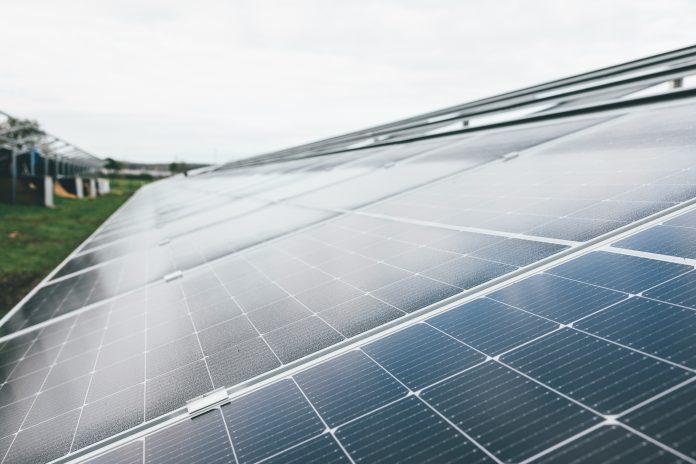The construction industry is a much-needed sector in a time of increasing housing needs. However, with a few years left for the world to meet global goals and help the environment, it’s high time for the sector to step up and adopt sustainable energy in construction.
The construction industry impacts the world economy and infrastructure. It also has an innate influence on carbon emissions because creating buildings requires many resources.
With as much bearing as the construction landscape has, it’s essential to embrace green solutions. Sustainable energy checks multiple boxes, from environmental protection and economic resilience to company reputation.
Environmental protection
The buildings and construction sector was responsible for 37% of global greenhouse gas emissions in 2023. This can partially be attributed to the amount of energy used when manufacturing different materials or using heavy-duty machinery to complete on-site projects.
It is not exactly feasible to change the energy requirements of these processes. However, changing the source of energy can be a game-changer. Sustainable power can meet the construction industry’s energy needs without affecting the world’s supply.
Sustainable energy also plays a role in meeting the Sustainable Development Goals the United Nations forged under the Paris Agreement to stop climate change. Despite the government’s climate plans, the UK was off-track in reaching its 2030 emissions target at the end of 2023.
While there are many calls to action for the administrative side of the country to step up, construction businesses must also consider their role. Many substantial changes are needed to help protect the environment.
Switching to sustainable power sources minimises the construction industry’s use of traditional energy sources, which are notorious for relying on fossil fuels. The high energy demand for construction operations and machinery is also a testament to how the industry can scale back on excessive power use.
When it takes advantage of sustainable energy, the construction industry can continue operating without harming the environment. Sustainable construction also opens doors to further realisations of how natural resources can be utilised rather than destroyed for infrastructure.
Economic resilience
Sustainable energy helps strengthen the construction industry’s economic resilience, which is especially important as businesses continue building back after the COVID-19 pandemic. Events like this showcase the importance of being prepared for anything.
Traditional practices have been rewarding, but even they can be too taxing. With rising power costs due to European countries minimising dependence on Russian gas, contractors need to find a way to scale back on these expenditures. Sustainable energy offers a path that could warrant further savings.
In the United States, the Community Solar Pilot programme plans to bring sustainable energy into the limelight in Ohio. It is estimated to contribute about $4.37bn to the state’s Gross State Product, which, as of mid-November, equates to more than £3.4bn.
Transitioning to renewable energy can require a significant upfront investment, and the prices will likely differ depending on the power source and capacity. However, if it does improve costs down the road, it could be the difference between staying in business and closing up shop.
Company reputation
Sustainable energy can also help improve a company’s reputation. In 2023, there were around 101,080 construction contractors businesses in the UK alone. Governments, establishments and individuals have plenty of choices, and it’s important for leaders to answer why they should be chosen.
Many people are gravitating toward sustainability, especially as they become more aware of climate change and the importance of mitigating it. Adopting renewables would signal that your business shares their dedication to minimising environmental impact. This can also build trust with your clients and team members, which is essential for getting repeat business and reducing turnover rates.
Public opinion influences the success of businesses, and those in the construction industry are not exempt from this. While these groups may not necessarily turn into patrons down the line, upholding positive public perception with sustainable energy can make a business more credible in the eyes of stakeholders and investors.
Utilising sustainable energy in construction
Sustainable construction is growing thanks to renewable energy. Solar panels for power generation are becoming a standard since the sun is always available to provide energy. Many residential and commercial businesses have adopted this, and the construction industry can use it, too. For example, laying out a bed of photovoltaic panels can charge many on-site items.
Utilising sustainable energy also offers a chance to combat power failures since it could uphold energy production independently. Solar panel installations are becoming increasingly common as renewable ways to supply temporary power to construction sites. They’re also beneficial for remote areas where regular power would be difficult.
Another sustainable energy technology garnering interest in construction is wind energy. Wind turbines have the potential to generate power, especially in areas with stronger air currents. Construction companies can create a farm and accumulate energy, storing it in generators for future operations.
There are also airborne wind energy systems. Devices are flown in a crosswind direction to collect energy from the upper atmosphere. These systems can harvest energy and directly send it down a stationary turbine. Development is ongoing, but their potential viability in construction makes them an interesting prospect.
Geothermal energy is also a valuable, sustainable energy source comparable to solar energy, as heat is constantly produced within the Earth. Power plants harness this heat to create steam for electricity production. While these are less popular in the UK, other European countries are catching on.
Additional practices for sustainable construction
Sustainable energy fulfils various roles within the construction industry. However, it must be accompanied by other green practices. For example, utilising pre-fabricated materials can be a considerable step.
Prefabricated materials facilitate a more functional infrastructure creation process by minimising manufacturing time. In the UK, there is an increasing demand for sustainable building products like precast concrete, which indicates a desire for more green construction materials.
There’s also the concern of toxic waste management. Construction and demolition create ten billion tonnes of waste globally per year. Sustainable energy may remove embodied emissions, but municipal solid waste still needs to be disposed of properly.
Adding passive house design aspects like larger windows and natural ventilation also goes a long way. These strategies impact how residential and commercial buildings use energy in the long run. Incorporating energy-efficient HVAC systems and insulation or smart building technologies for energy optimisation can also improve the overall building construction.
Another decision that can improve the construction industry’s pursuit of sustainability is to collaborate. Share knowledge with industry leaders and encourage them to become more involved with making the space greener.
Achieving sustainable construction
Sustainable energy in the construction industry is becoming more recognised and emphasized by the day. Businesses are encouraged to acknowledge its role and impact and adopt it into their practices. That way, they can also do their part in uplifting green construction, helping the environment and mitigating climate change.









